Filter by
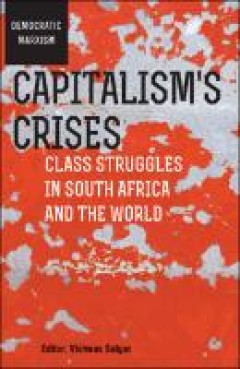
Capitalis'm Crises Class struggles in South Africa and the world
"The contributors to this volume draw on a non-dogmatic Marxist approach to explain the systemic and conjunctural dynamics of crisis inherent in global capitalism. Their analysis asks what is historically specific to capitalism's crises while avoiding catastrophic or defeatist claims. At the same time the volume situates left agency within actual patterns of resistance and class struggle to cla…
- Edition
- -
- ISBN/ISSN
- 9781868149261
- Collation
- xii, 312 p. ;
- Series Title
- -
- Call Number
- 330.122 CAP b
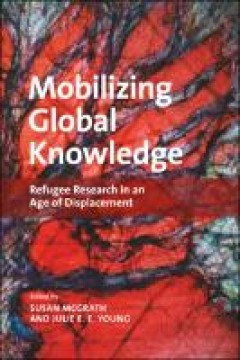
Mobilizing global knowledge : refugee research in an age of displacement
An examination of, and guide to, the challenges and responsibilities of doing research with displaced peoples while respecting their complex needs. In 2018, the United Nations High Commission for Refugees documented a record high 71.4 million displaced people around the world. As states struggle with the costs of providing protection to so many people and popular conceptions of refugees have be…
- Edition
- 9
- ISBN/ISSN
- 9781773850870
- Collation
- vii, 336p.; ill.
- Series Title
- -
- Call Number
- 305.906914072 MOB m
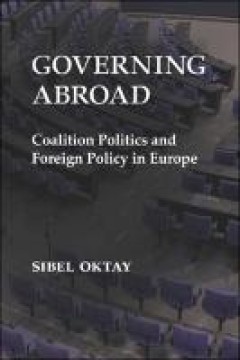
Governing abroad : coalition politics and foreign policy in Europe
From Austria to New Zealand, coalition governments often pave the road to foreign policy. In Western Europe, nearly 90 percent of postwar governments include two or more political parties. Israel, the Middle East’s only consolidated democracy according to many, has never experienced single-party rule in its history. Even the United Kingdom, known for its long streak of single-party rule, now …
- Edition
- 2
- ISBN/ISSN
- 9780472902859
- Collation
- xiiii, 254p.
- Series Title
- -
- Call Number
- 324.2094 GOV o

Women and the UN : a new history of women's international human rights
This book provides a critical history of influential women in the United Nations and seeks to inspire empowerment with role models from bygone eras. The women whose voices this book presents helped shape UN conventions, declarations, and policies with relevance to the international human rights of women throughout the world today. From the founding of the UN and the Latin American feminist move…
- Edition
- -
- ISBN/ISSN
- 9781003036708
- Collation
- xviii, 200 p.
- Series Title
- -
- Call Number
- 323.34 WOM R

Vital subjects : race and biopolitics in Italy, 1860-1920
Drawing on a range of canonical and non-canonical literary, cinematic and social scientific texts produced in post-Unification Italy, Vital Subjects: Race and Biopolitics in Italy is an interdisciplinary study of how racial and colonial discourses shaped the "making" of Italians as modern political subjects in the years between its administrative unification (1861–1870) and the end of the Fir…
- Edition
- edision 14
- ISBN/ISSN
- 9781781382868
- Collation
- ix. :304 p. ;ill.
- Series Title
- -
- Call Number
- 900. VIT r
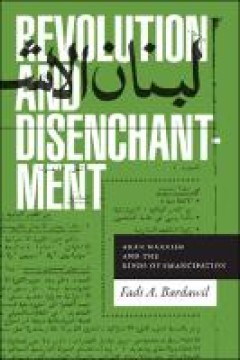
Revolution and disenchantment : arab marxism and the binds of emancipation
The Arab Revolutions that began in 2011 reignited interest in the question of theory and practice, imbuing it with a burning political urgency. In Revolution and Disenchantment Fadi A. Bardawil redescribes for our present how an earlier generation of revolutionaries, the 1960s Arab New Left, addressed this question. Bardawil excavates the long-lost archive of the Marxist organization Socialist …
- Edition
- edision 14
- ISBN/ISSN
- 9781478007586
- Collation
- xi. :281 p.
- Series Title
- -
- Call Number
- 320.5315095692. REV f
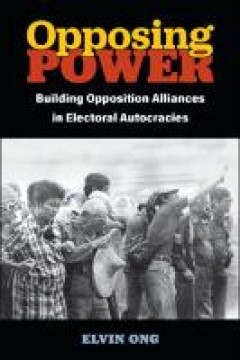
Opposing power : building opposition alliances in electoral autocracies
Opposing Power argues that perceptions of regime vulnerability and mutual dependency by opposition elites shape the building of opposition alliances. When electoral autocracies are consistently dominant, opposition parties eschew fully fledged alliances. At best, they allocate only one candidate to contest against the incumbent in each subnational electoral district to avoid splitting the oppos…
- Edition
- edision 2
- ISBN/ISSN
- 9780472133000
- Collation
- xiii. :313 p.
- Series Title
- -
- Call Number
- 322.4. OPP e
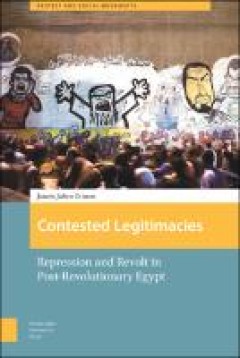
Contested legitimacies : repression and revolt in post-revolutionary egypt
Since the military overthrow of President Mursi in mid-2013, Egypt has witnessed an authoritarian rollback. Through a combination of repression and nationalist securitizing discourses, popular pressure for reform was successfully channelled into a state-centric model of governance. But despite state violence and the restriction of public spaces, protests have anything but ceased. Contested Legi…
- Edition
- edision 9
- ISBN/ISSN
- 9789048553457
- Collation
- 353 p. ;ill.
- Series Title
- -
- Call Number
- 320.962. CON j
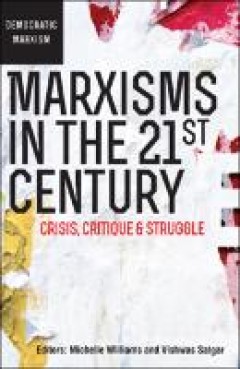
Marxisms in the 21st century : crisis, critique & struggle
The current resurgence of Marxism is based on new sources of inspiration and creativity from movements that seek democratic, egalitarian and ecological alternatives to capitalism. The Marxism of many of these movements is neither dogmatic nor prescriptive, but rather, open, searching, utopian. It revolves around four primary factors: the importance of democracy for an emancipatory project; the …
- Edition
- 13
- ISBN/ISSN
- 9781776147052
- Collation
- vi, 304p.
- Series Title
- -
- Call Number
- 307.14 BON m
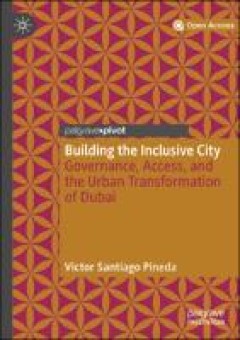
Building the Inclusive City : Governance, Access, and the Urban Transformatio…
This Open Access book is an anthropological urban study of the Emirate of Dubai, its institutions, and their evolution. It provides a contemporary history of disability in city planning from a non-Western perspective and explores the cultural context for its positioning. Three insights inform the author’s approach. First, disability research, much like other urban or social issues, must be si…
- Edition
- -
- ISBN/ISSN
- 9783030329884
- Collation
- xvii, 169 p. ill;
- Series Title
- -
- Call Number
- 307.1216095357 BUI V
 Computer Science, Information & General Works
Computer Science, Information & General Works  Philosophy & Psychology
Philosophy & Psychology  Religion
Religion  Social Sciences
Social Sciences  Language
Language  Pure Science
Pure Science  Applied Sciences
Applied Sciences  Art & Recreation
Art & Recreation  Literature
Literature  History & Geography
History & Geography